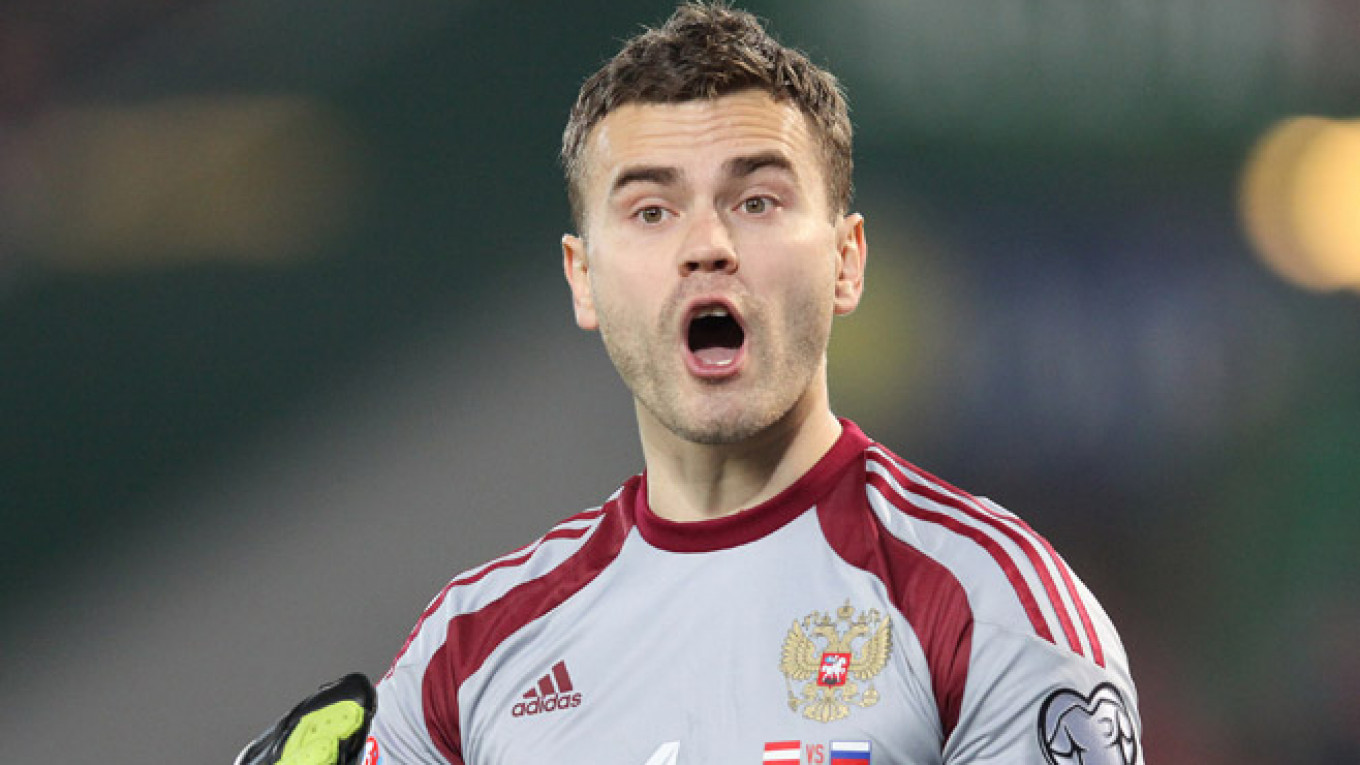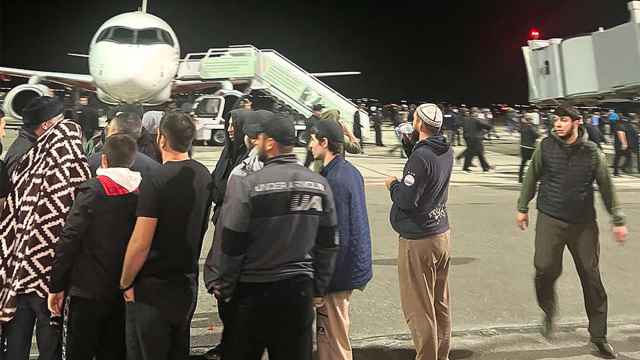The Montenegrin fan who threw a flare Friday at Russian goalkeeper Igor Akinfeyev during a European championship qualifier has apologized, claiming he did not mean to strike Team Russia's star player in the head.
“I'm ashamed of what happened,” 25-year-old fan Luka Lazarevich was quoted as saying by Montenegrin news site Vijesti on Saturday. “I apologize to the victim, the Russian Football Union, our national team and the nation of Montenegro.”
Akinfeyev was struck in the head by the flare approximately 20 seconds after kickoff at a Euro 2016 qualifying match on Friday. The goalkeeper collapsed to the ground and was treated immediately by medical staff before being carried off the pitch on a stretcher.
Akinfeyev was taken to a local hospital in the Montenegrin capital Podgorica wearing a neck brace. Eduard Bezuglov, the doctor of the Russian team, said the goalkeeper has suffered a concussion and a burn on his neck, according to the website of the Russian Football Union (RFU).
Akinfeyev and his teammates flew back to Moscow on Saturday morning. The goalkeeper is expected to resume practicing in the next few days, Russian media reported.
“I am feeling alright now,” Akinfeyev said Saturday in a statement published on the RFU website. “It turns out that things like this unfortunately can happen in football. I hope that nothing similar ever happens again, either in Montenegro or in any other country.”
Lazarevich claimed the incident was accidental, according to Vijesti. After a flare had fallen at his feet in the stands, Lazarevich said he picked it up and “instinctively” tossed it toward the field in an effort to prevent fans from getting burnt by its sparks.
“If I could have run onto the field to offer my help, I'm the first one who would have gone to him [Akinfeyev],” Vijesti quoted Lazarevich as saying.
Lazarevich, who turned himself over to police Saturday, faces criminal charges for inappropriate behavior at a sporting event, Vijesti reported.
The match got under way again after Akinfeyev was taken off the field, but was later abandoned.
Midway through the second half, a scuffle ensued between players near the touchline, with Eastern Europe's Sport Klub television reporting that a missile hurled from the terraces appeared to have hit another Russian player.
Players claimed a laser beam was pointed in the eyes of team captain Roman Shirokov as he was about to take a penalty shot in the 66th minute of play, Russian media reported. A lighter was also allegedly thrown at midfielder Dmitry Kombarov.
The RFU also said that Russia midfielder Alan Dzagoyev had been struck by coins thrown from the stands while receiving medical treatment for a thigh injury.
The RFU launched a protest against the decision by UEFA officials to continue the match after the incident involving Akinfeyev.
"In my opinion, they needed to stop the game immediately," Capello said in his post-match press conference. "We did what the match delegate told us and went out on to the pitch and played. We could not simply refuse and walk away."
Russian Football Union president Nikolai Tolstykh said in a statement that Montenegro should be handed a technical defeat.
UEFA said it would wait to receive reports from the match delegate and referee before opening disciplinary proceedings.
Russia and Montenegro are third and fourth respectively in Group G, both with five points from four games.
It is the first time that Russia and Montenegro have played against each another.
Friday's match is not the first case of severe crowd trouble during a Euro 2016 qualifier. Last year, a match between Serbia and Albania was abandoned after a drone carrying a political banner was flown into the stadium.
A Serbia player pulled the banner down and Albanian players tried to protect it. In the resulting disorder, Serbian fans attacked Albania players. Both teams were punished over the incident.
(Reuters, AP, MT)
A Message from The Moscow Times:
Dear readers,
We are facing unprecedented challenges. Russia's Prosecutor General's Office has designated The Moscow Times as an "undesirable" organization, criminalizing our work and putting our staff at risk of prosecution. This follows our earlier unjust labeling as a "foreign agent."
These actions are direct attempts to silence independent journalism in Russia. The authorities claim our work "discredits the decisions of the Russian leadership." We see things differently: we strive to provide accurate, unbiased reporting on Russia.
We, the journalists of The Moscow Times, refuse to be silenced. But to continue our work, we need your help.
Your support, no matter how small, makes a world of difference. If you can, please support us monthly starting from just $2. It's quick to set up, and every contribution makes a significant impact.
By supporting The Moscow Times, you're defending open, independent journalism in the face of repression. Thank you for standing with us.
Remind me later.






